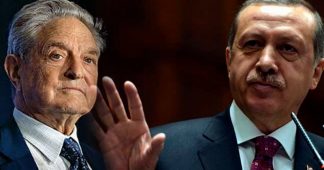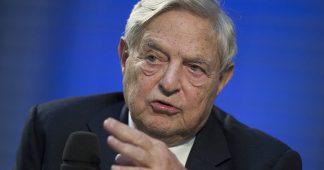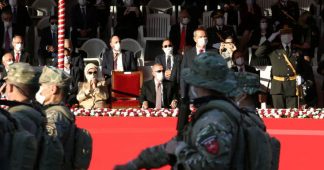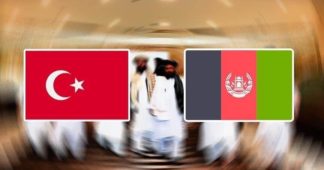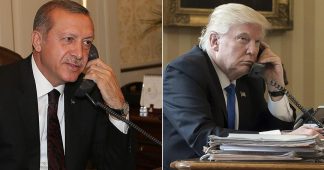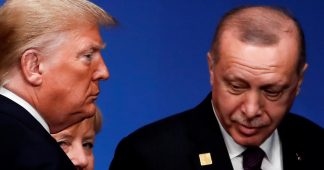Turkish officials reached an understanding with Washington to avoid a showdown with western nations over imprisoned Turkish businessman Osman Kavala
Ragip Soylu
25 October 2021
Diplomatic efforts by Turkish and US officials averted the threatened expulsion of 10 western envoys amid a dispute over imprisoned Turkish businessman Osman Kavala, sources told Middle East Eye.
According to the sources, Turkish presidential officials negotiated a way out of the crisis with American diplomats after President Recep Tayyip Erdogan publicly said he would declare 10 ambassadors, including envoys from the US, Canada, Germany and France, unwanted – or persona non grata.
In several speeches over the last few days, Erdogan did not hide his anger against the diplomats who released a short statement last week asking Ankara to comply with the judgement of the European Court of Human Rights and release Kavala, who is accused of trying to topple the Turkish government.
People familiar with the matter told MEE that Erdogan had actually ordered the expulsion of the diplomats last week, but the foreign ministry delayed the implementation of the order in the hope that the president could be convinced otherwise.
On Saturday, Erdogan definitively reiterated that he wanted all of the 10 envoys to be expelled. In order to avert the crisis, a senior Turkish official reached out to the Americans to give them a chance for a retraction.
According to the sources, the two sides reached an understanding to lower tensions and come to an agreement: the US and other signatory countries would release a statement that would re-commit them to non-interference towards the domestic affairs of the host country.
Later on Monday, the US embassy in Turkey and others released a statement on Twitter: “The United States notes that it maintains compliance with Article 41 of the Vienna Convention on Diplomatic Relations.”
Canada, the Netherlands and New Zealand each sent a similar message, while France, Germany, Norway, Sweden, Denmark, and Finland re-tweeted the US message.
The statements were made almost simultaneously on Twitter as Erdogan entered a cabinet meeting to discuss expelling the 10 ambassadors, a move that would open Turkey’s deepest diplomatic rift with the West in his 19 years in power.
State-run Anadolu news agency, citing sources in the presidency, reported that Erdogan had “welcomed” the statements. Anadolu and state broadcaster TRT described them as “a step back” by the embassies.
In response, the Turkish lira rallied after hitting an all-time low of 9.85 to the US dollar and was at 9.58 when markets closed. It has lost almost a quarter of its value this year.
‘These ambassadors will be more careful’
Speaking after the cabinet meeting, Erdogan said his government did not intend to create a diplomatic crisis with foreign nations.
“[They] reverted from a mistake with the release of statements from the embassies today,” he said. “We believe these ambassadors will be more careful from now on.”
A senior Turkish official told MEE that the crisis was over, but the next few days could prove tricky with potentially more angry statements from Turkish officials. “But we are over it,” the official said.
Since 2017, Turkey has kept Kavala imprisoned without charge over alleged links to anti-government protests in 2013 and a failed military coup in 2016. Kavala denies the accusations.
Despite being acquitted in February 2021 of financing the 2013 protests, he was immediately charged with “attempting to abolish the constitutional order” after Erdogan criticised the court’s decision.
In a rare statement on Monday, Canada; Denmark; Finland; France; Germany; the Netherlands; Norway; Sweden; and the US called for a “just and speedy resolution” to Kavala’s case.
“The continuing delays in his trial… cast a shadow over respect for democracy, the rule of law and transparency in the Turkish judiciary system,” they said.
The embassies called on Turkey to follow the rulings of the Council of Europe, a human rights body it joined in 1950.
Published at www.middleeasteye.net
We remind our readers that publication of articles on our site does not mean that we agree with what is written. Our policy is to publish anything which we consider of interest, so as to assist our readers in forming their opinions. Sometimes we even publish articles with which we totally disagree, since we believe it is important for our readers to be informed on as wide a spectrum of views as possible.
